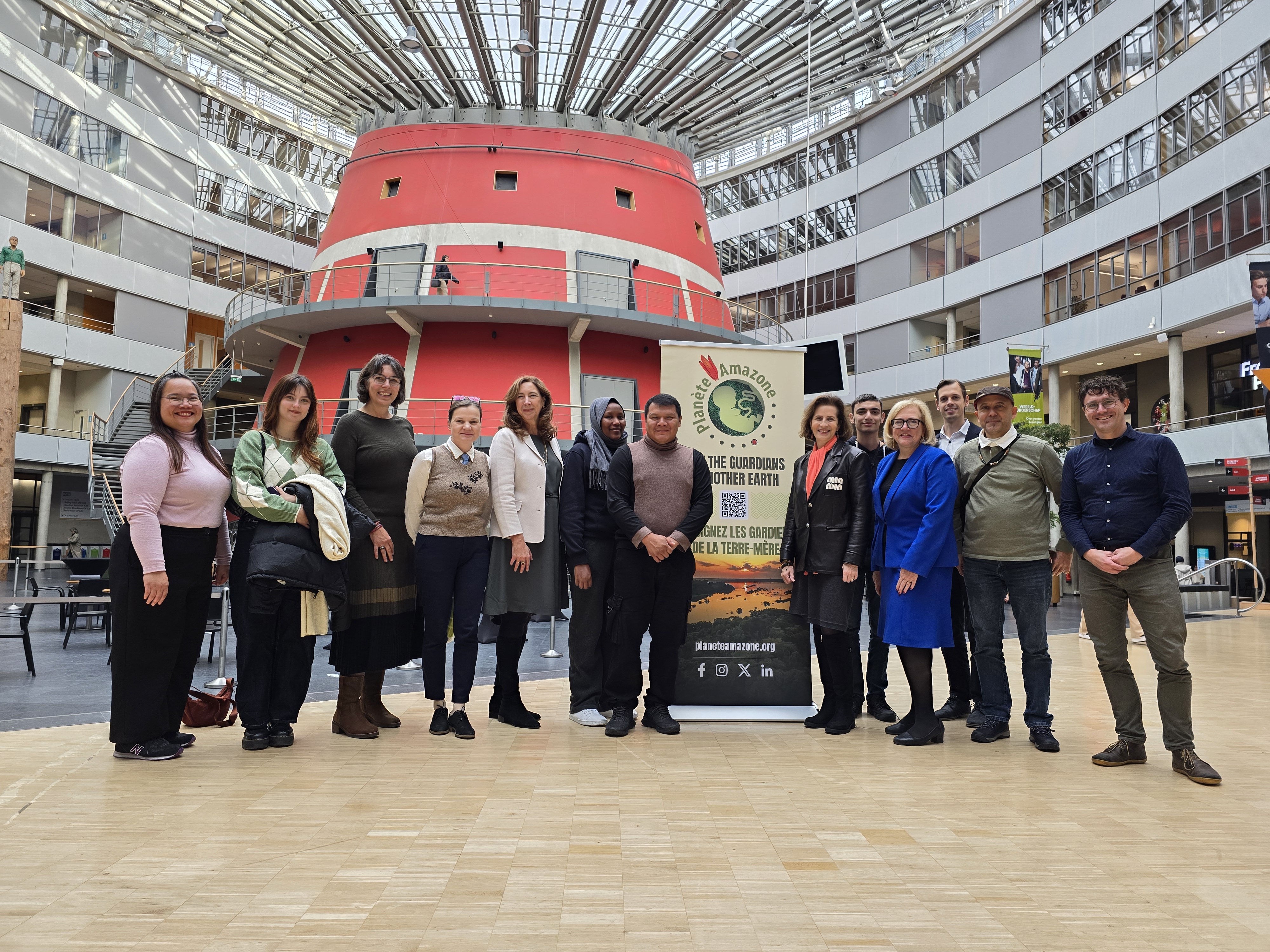Amazonia – indigenous people as guardians of biodiversity
20 November 2024
The film Amazonia tells the story of the indigenous peoples of the Amazon, their fight to protect their environment, and their desire to be more effectively heard and involved in the international arena.

Where do sustainability and justice meet each other intensely? In November, two senior representatives of indigenous people visited THUAS: Mauricio Yekuana, the president of the Hutukara Yanomami NGO from Brazil; and Magdalene Kaitei, Cheffe of the Maasai in Kenya. “We speak different languages, but our spirit is the same,” Magdalene said to us. The occasion for their visit was the prepremiere at THUAS of the film Amazonia: the Heart of Mother Earth. An impressive documentary by H.R.H. Princess Esmeralda of Belgium and Gert-Peter Bruch.
The film tells the story of the indigenous peoples of the Amazon, their fight to protect their environment, and their desire to be more effectively heard and involved in the international arena. People who are an integral part of the lands they inhabit, caretakers of Mother Nature. The filmmakers want to make an appeal to the international community and the International Criminal Court to include ecocide as a fifth international crime, alongside war crimes, crimes against humanity, genocide, and the crime of aggression. Students and lecturers had an interesting discussion with them after the screening.
For THUAS, Amazonia resonates with an essential theme: contributing to a more sustainable and equitable world. The film screening is an initiative of the university’s Green Office, where students and staff work together toward a more sustainable campus. According to Magdalene, there is a lot our students can do: plant a tree, do research into innovative ways to save the planet, get involved in policy processes, raise your voice and embrace a better lifestyle on a personal level. Students can also try to connect with indigenous people – those that care for 80% of the global biodiversity – and are invited to do this by the filmmakers, and by Mauricio and Magdalene.
Awareness of the position the indigenous people are in, is crucial in becoming a global citizen. The message for education from Mauricio and Magdalene was a very strong one: indigenous people áre educated, even though in western terms it may not seem so; in many cases they cannot read or write. But when we look at living in harmony with nature – the essence of sustainability - they are actually more educated than us. Indigenous people have not lost touch with the essence of life, they are the embodiment of it. They care for the heart of Mother Earth.
As Mauricio summarized it: education is taking care of the seeds, and thus taking care of the future.